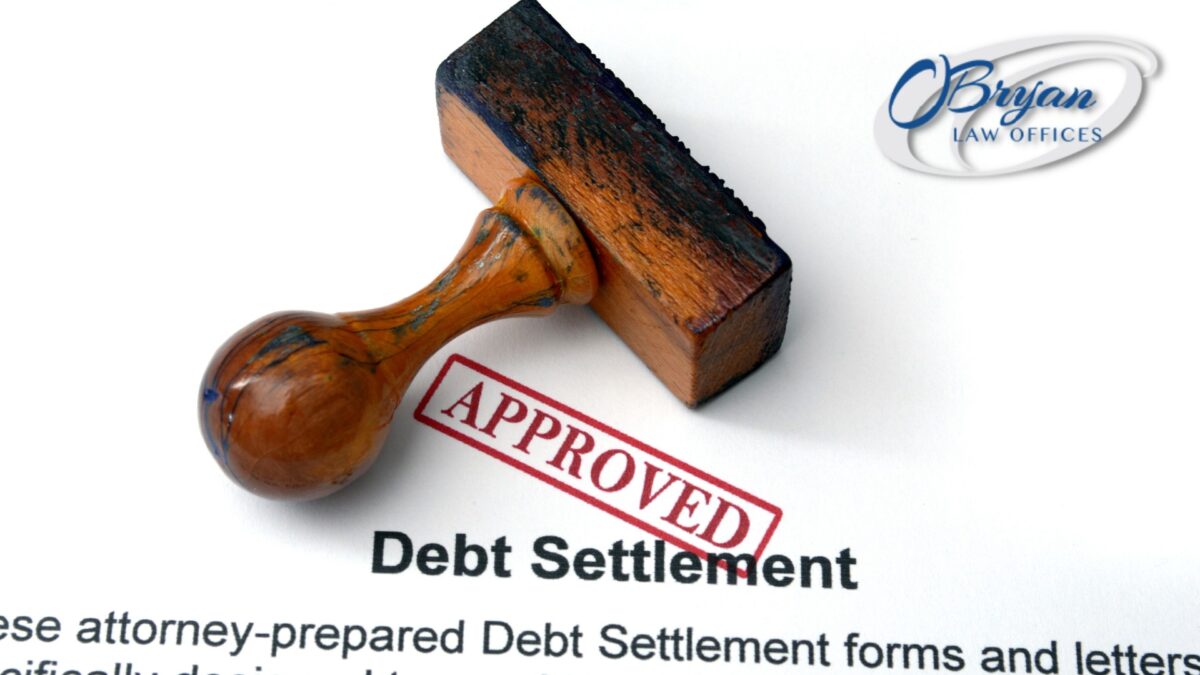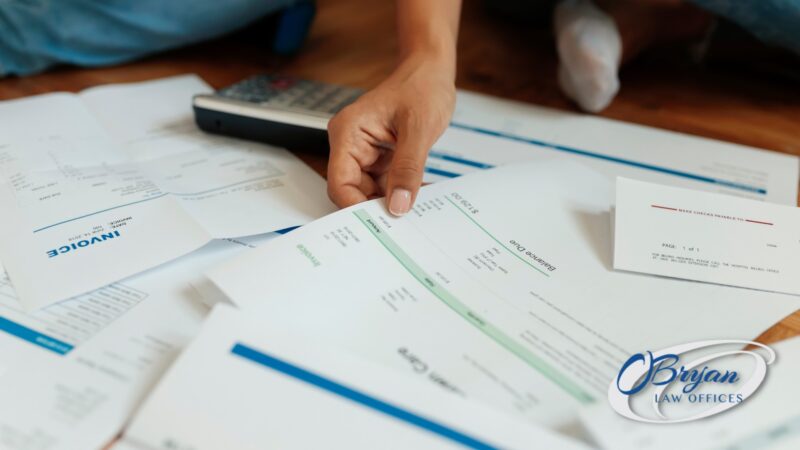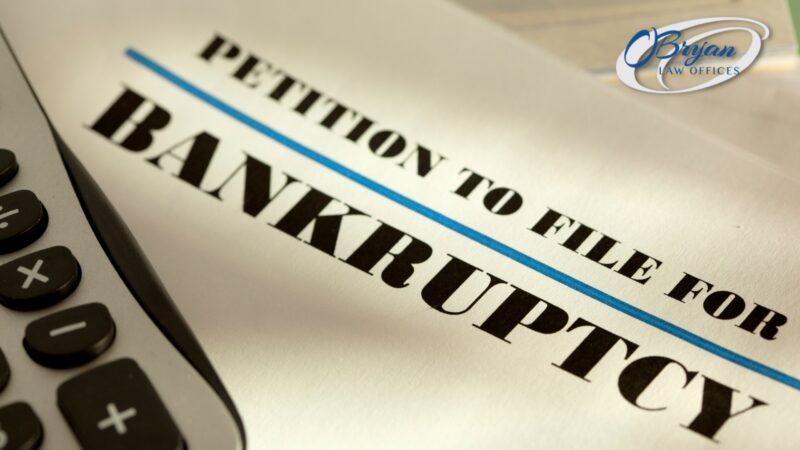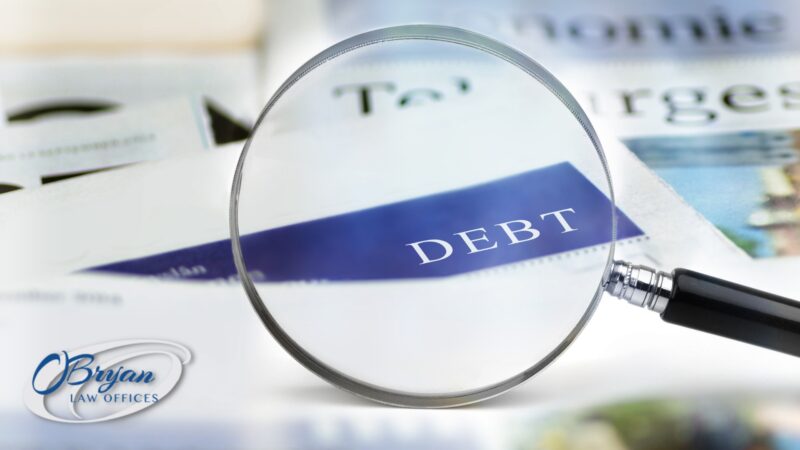Debt Settlement Pros and Cons


When you’re struggling with a bad financial situation, the options to relieve your debt are endless. However, weighing all available options is crucial before jumping into the one that sounds the best. Debt relief is a breeding ground for individuals who take advantage of those looking for a way out of debt.
One debt relief option is debt settlement. A debt settlement may sound like a great idea and help you avoid bankruptcy, but there are many risks involved with using this option. Before deciding how you want to get out of your financial situation, discuss other debt relief opportunities with an experienced bankruptcy attorney.
At the O’Bryan Law Offices, we’ve helped many families in the Kentucky area become debt free and gain financial freedom. If you’re considering debt settlement, our attorneys are ready to answer all of your questions. Maybe you’re wondering, “How does a debt settlement affect my future finances?”
If you’re interested in learning more about how the bankruptcy attorneys at the O’Bryan Law Offices can help you gain financial freedom, call us today at 502-339-0222 to schedule a free consultation.
NOTE: O’Bryan Law Offices is not a debt settlement company and does not offer debt settlement services. This page is intended to educate consumers on their debt relief options.
What Is Debt Settlement?
Debt settlement is when you or a third-party consult with creditors to pay less than you owe. The debt settlement payment is a lump sum payment paid to the creditor. Once the payment is made, the creditor will forgive the remaining debt. It can benefit those in debt, but it can also worsen your credit score and worsen your already detrimental financial situation.
It’s called “debt settlement” because the creditor will agree to “settle” your account by allowing you to pay less than you owe. However, debt settlement options can be a breeding ground for scams that exploit those desperate to eliminate their debt.
How Does Debt Settlement Work?
If you’re considering debt settlement, you can approach your creditor alone or use a debt settlement company to negotiate. If you use a debt settlement company, a fee will be required, which is a percentage of the debt you owed when you started the program. The company can only collect this fee once you have a debt settlement.
When considering a debt settlement, you must cease payment on your debt for around six months or more. After this period, you approach your creditors and propose a debt settlement plan. The creditors can either approve this plan or deny it, which makes this debt relief route risky.
Sometimes creditors accept this arrangement to collect some of the money owed. However, they don’t have to accept this debt settlement plan which means that you’ve become incredibly behind on your payments, and your credit report has taken a huge hit.
Is Debt Settlement a Good Idea?
Debt settlement can help some individuals find debt relief by paying off their debt in an amount that is a fraction of what is owed. A debt settlement might be a good idea if you believe you can make a lump sum payment to resolve your debt. However, if your financial situation has become so dire that you can’t make the monthly payment, you may want to consider other debt-relief options.
Upsides to Debt Settlement
When individuals are looking for debt relief, the options are extremely limited. A debt settlement program can benefit those looking to avoid bankruptcy and resolve their debts.
Avoiding Bankruptcy
When individuals reach the point of a debt settlement program, they’ve also considered filing for bankruptcy. While debt settlement can have many drawbacks, they are seen as better than the repercussions of filing a Chapter 7 or 13 bankruptcy. A creditor might be more satisfied with a debt settlement agreement because they will receive some of the money you owe. With a Kentucky Chapter 13 bankruptcy filing, the creditor may receive less money than a debt settlement. The creditor may not receive any money if you file for Chapter 7 bankruptcy in Kentucky.
Both debt settlement and bankruptcies can negatively affect your credit score, but how long they affect you varies. A debt settlement can stay on your credit report for seven years, while bankruptcies can last much longer. Chapter 7 can stay on your credit report for ten years, and Chapter 13 can stay for seven years. While this may not seem like a long time, many credit cards, jobs, and loans look at your financial history to see if you’ve filed for bankruptcy.
Avoiding Lawsuits
Depending on the amount of your credit card debt, you could risk a lawsuit against you from the credit card company. Once you default on your credit card, they can sue you to collect the money you owe. Once you’re in default, the company either files a lawsuit and settles, or they can charge off that debt and send it to a collection agency.
A debt settlement could help you avoid a lawsuit if you struggle with credit card payments. Since legal proceedings and attorney fees are expensive, the credit card company will more likely agree to a settlement rather than go to court.
Debt settlement only applies to an unsecured debt like a credit card. Any secured debt you have, like a car loan or mortgage, cannot be settled. Instead of a settlement, your home will be foreclosed on, or your car will be repossessed. In these cases, we recommend speaking with a foreclosure defense lawyer or repossession lawyer.
Achieve Debt Relief Faster
The debt settlement process can offer an individual a faster way to relieve their debt than bankruptcy, credit counseling programs, and debt management plans. With debt settlement, you could have your debt resolved in up to four years.
Avoiding Charge-Offs or Collections
A major benefit of a debt settlement is that once you reach an agreement with your creditors, they can no longer attempt to collect debt payments. This can help you avoid having your debt sent to collections or charged off. A charge-off is when your debt has been sold to a debt collection agency. Once your debt settlement agreement has been reached, it can offer relief to those overwhelmed by constant calls from creditors and debt collectors. While this doesn’t have a monetary value, it can provide peace of mind for the first time in a long time.
Downsides to Debt Settlement
While some individuals may be inclined to use debt settlement to relieve their debt, several cons of debt settlement are important to consider.
Exorbitant Fees of Debt Settlement
Many debt settlement companies charge fees for their services. Some fees can total upwards of $3,000. The fees that the debt settlement company will charge you don’t go towards paying off your debt; they strictly pay for the services they provide. It can worsen your financial situation when you already owe the debt and add the debt settlement companies’ fees.
Companies Withholding Your Funds
Some debt settlement companies have been reported as withholding funds in escrow for years. During this time, they tell the consumer that they are still negotiating with their creditors but are not progressing.
Some debt settlement companies hang on to the payment and refuse to return it to the consumer. It’s not uncommon for a debt settlement company to deceive you into signing away your rights to the debt payments you give them.
You End Up Paying Off More Debt Than You Started With
The debt settlement process involves you stopping any payments towards your debt. This is so you or your debt settlement company can negotiate with your creditors. The negotiation phase takes time and can take a while to reach an agreement.
Since you’re stopping payments, you could accrue late fees and interest. Even if the creditor has to settle the debt, that doesn’t mean you’re off the hook. The Internal Revenue Service, IRS, considers any debt forgiven taxable income.
Serious Credit Score Implications
Debt settlement programs don’t affect your credit score as severely as a bankruptcy filing, but they have negative consequences. Your creditor can report the debt settlement to the three leading credit bureaus, which can negatively affect you if you try to get a loan, seek credit availability, employment opportunities, and more.
Implications on Taxes
Even though your creditor has agreed to a debt settlement, you can still be responsible for paying taxes on the forgiven debt. The creditor must notify the IRS when the debt settlement is $600 or more.
Creditors Can Refuse a Debt Settlement
Even though you’ve hired a debt settlement company to negotiate your debt, the creditor is not guaranteed to agree to the terms. Whether the creditor agrees to the debt settlement plan is up to that particular creditor. Some creditors will refuse to deal with a debt settlement service.
Alternatives to Debt Settlement
If you’re looking for debt relief, other options are available instead of a debt settlement. Depending on your financial situation, you might have more leverage negotiating with your creditors than you think. Recently, creditors have become more open to settling debts. You may be surprised they’re willing to work with you, whether it’s a lower interest rate or waived late fees.
Other debt relief options that you should consider are:
- Balance transfer credit card: This debt relief strategy moves your credit card debt to another credit card. Many credit cards offer an introductory interest rate of 0%. To go this route, you’ll need to qualify for the balance transfer credit card, meaning you’ll need a credit score of at least 670. Also, it’s important to consider the fees you’ll be charged to transfer the balance. For this scenario to help you relieve your debt, you’ll need to pay off the debt before the interest rate kicks in.
- Credit counseling: A nonprofit credit counseling agency can provide free credit counseling services. These credit counseling agencies can evaluate your financial situation and make the appropriate recommendations. A nonprofit credit counseling agency can also equip you with a debt management plan to help you pay off your debts.
- Debt consolidation: While debt consolidation comes with risks, it is another option for debt relief. For this option, you’ll need to take out a debt consolidation loan which you will use to pay off multiple debts. Debt consolidation loans can be personal loans, credit cards, home equity loans, or student loans. Debt consolidation can provide you with a lower interest rate and/or lower monthly payments.
Chapter 7 Bankruptcy
A Chapter 7 bankruptcy is the most common bankruptcy filing. Most of your unsecured debt, like credit card bills, personal loans, and medical bills, will likely be discharged during a Chapter 7 bankruptcy. Known as liquidation bankruptcy, Chapter 7 will have a trustee in charge of liquidating your non-essential property to pay off your debts. During the liquidation, you can keep necessities such as clothing, a vehicle, and anything else you need to live and work.
Your court-appointed trustee will use the funds from the liquidation to settle debt based on their level of importance. Unsecured priority debts like taxes and child support are first. Then secured debts are paid next, which include any debts, like a mortgage, that involve collateral. Any leftover funds will go towards paying unsecured debts like your credit cards. Once the funds have been used, the rest of your debts will be discharged.
Filing a Chapter 7 bankruptcy is quicker, but you lose most of your assets. However, a Chapter 7 bankruptcy can stay on your credit report for ten years.
Chapter 13 Bankruptcy
A Chapter 13 bankruptcy is also known as the wage earners bankruptcy. This bankruptcy is for individuals with an income too high to qualify for a Chapter 7. Many individuals that file for Chapter 13 bankruptcy make a regular income but have fallen behind on credit card debt or other payments. This form of bankruptcy reorganizes your debts, and a trustee creates a repayment plan for you to follow to settle the debt. Due to the debt repayment plan, a Chapter 13 bankruptcy can take three to five years to complete, but you can keep your house, which a Chapter 7 filing does not guarantee. Once you’ve completed your repayment plan, the Chapter 13 filing will stay on your credit report for seven years.
Debt Settlement Scams to Avoid
Many companies can take advantage of the vulnerability of those with crippling debt. In fact, scams are major cons of debt settlement. If a deal sounds too good to be true, it’s most likely not genuine. When finding a debt settlement agency, look out for these red flags:
- Paying fees before debt settlement services: If your debt settlement provider requires you to pay fees before negotiating with your debt collector, it’s most likely not a legitimate company. Most companies in the debt settlement industry will not charge upfront fees. A debt relief company will only charge you fees AFTER the process has been completed.
- False promises: If a debt settlement company tells you they will resolve all of your debt and stop any collection efforts and lawsuits, that’s simply impossible. A creditor may or may not accept your debt settlement offer. In fact, many won’t even work with most debt settlement programs. A debt settlement is never a done deal; the debt settlement company can’t guarantee anything.
- Lack of communication: If the debt settlement company you’re working with does not tell you all the risks of the debt settlement or how not making payments could negatively affect your credit score, they do not have your best interest in mind. You need to know every risk involved with a debt settlement and how it can affect your credit score and finances.
Are You Struggling with Crushing Debt?
If you’re struggling with debt and are looking for a way out, a debt settlement plan is an option for you. However, many uncertainties are involved with taking this route to relieve your debt. Unfortunately, many people out there take advantage of those struggling with debt’s vulnerability and worsen their already dire financial situation.
When you’re struggling with debt, discussing your options with an experienced bankruptcy attorney is important. They will weigh your options and guide you through the process. Working with an experienced Kentucky bankruptcy attorney can help you choose a debt relief route that you can feel confident in instead of one that may leave you worse off.
Contact O’Bryan Law Offices Today
If you’re considering a debt settlement to help you get out of debt, you should consider all the debt relief options available. Contact a bankruptcy attorney at the O’Bryan Law Offices to discuss your debt relief options. Our law firm has years of experience helping those in financial stress finally have peace. When you work with one of our bankruptcy attorneys, we will evaluate your finances and help you decide the best option. Our goal at the O’Bryan Law Office is to help you achieve financial freedom. To schedule a free debt relief consultation, call us today at 502-339-0222.










